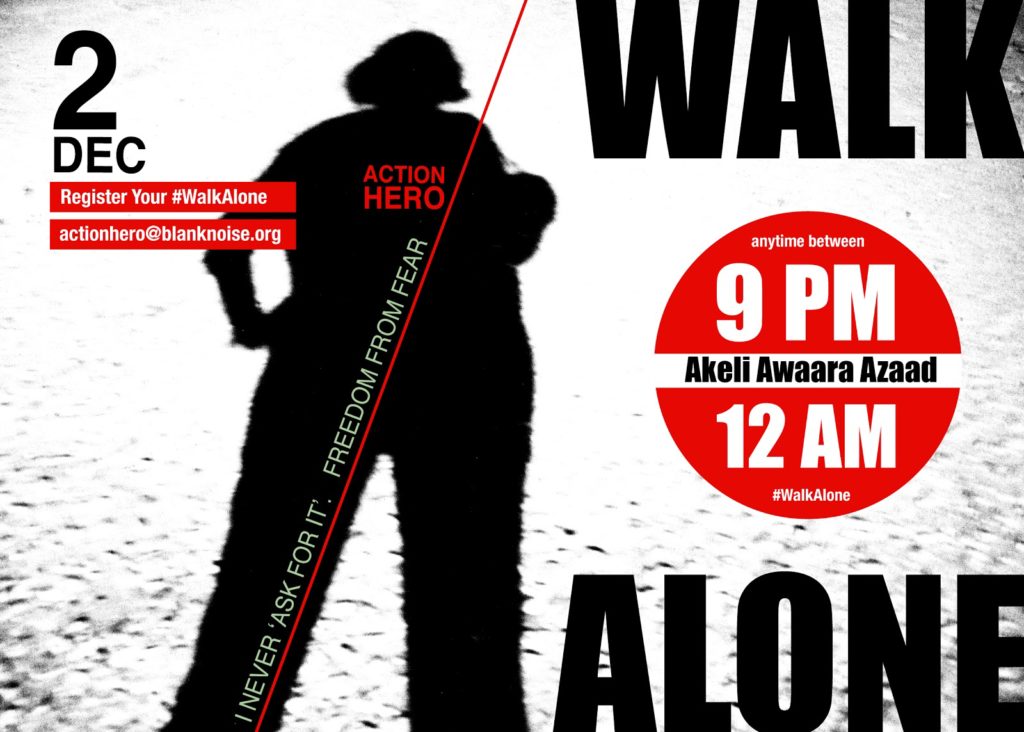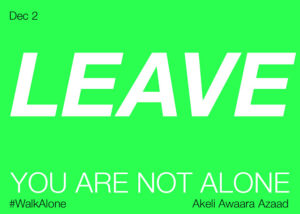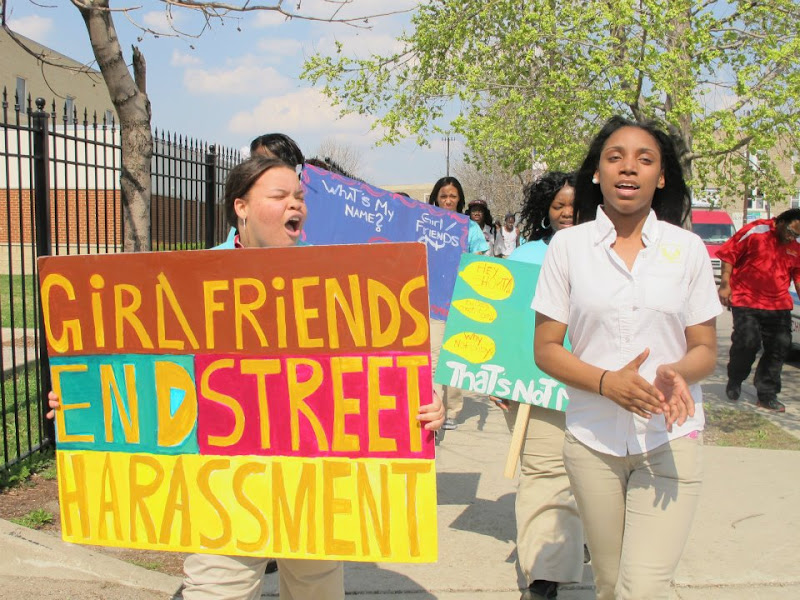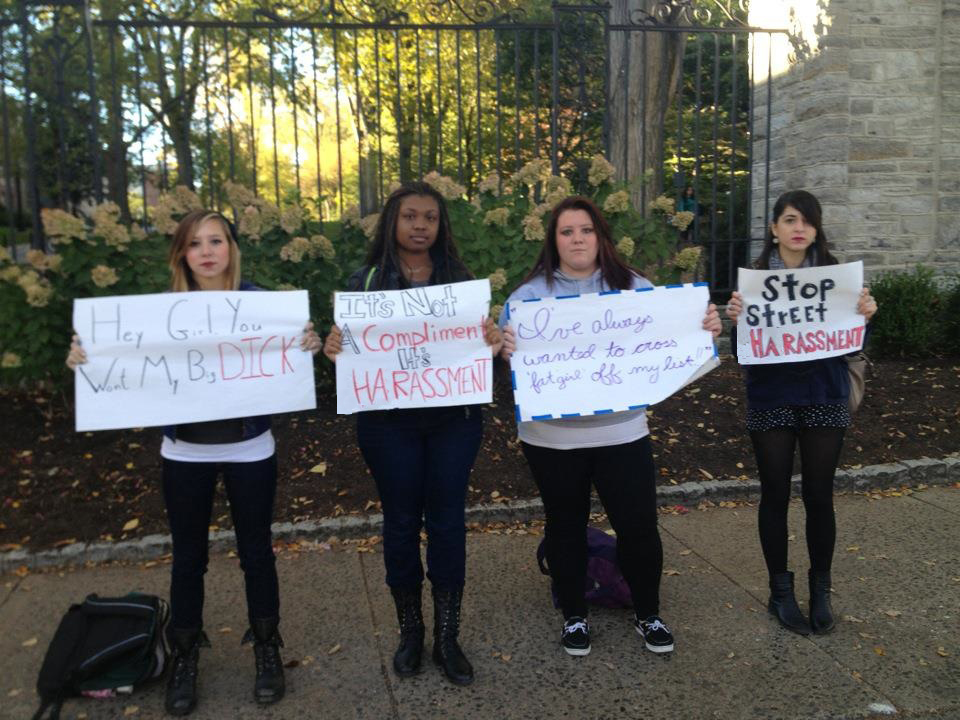From our friends at Blank Noise in India:
-
Have you walked, not having to think twice about the width of your smile,the length of your blouse, skirt, tee neck, sleeve.
-
Have you clenched your fist so hard ,worn a frown, sharpened elbows out ?
-
Does your daily list of every place, person, garment you ‘avoid’/ deny reveal a larger something- that you decide where to go, how to go, what time to go, what clothes to go in, with whom to go based on your safety?
-
Have you too been warned, just like me, about places, our bodies, our clothes, our cities, our streets?
An environment that constantly reminds women and girls to be careful , is also messaging out “ you experienced violence because you were not being careful enough”. Warnings lead to blame, blame leads to silence and shame. Our environments need to be made safe and inclusive, rather than have women carry the weight of warnings and fear. #INeverAskForIt #WalkAlone Towards Freedom From Fear.
 100 Action Heroes #WalkAlone
100 Action Heroes #WalkAlone
Friday, 2nd December
anytime between
9 pm – midnight
Women occupy streets at night.
Alone. Wandering. Walking.
Stop To Gaze At The Stars
Smell the night blooming flowers
We are many
We are visible
Action Heroes co create safe spaces
We Walk Alone, Together;
Towards Freedom From Fear
Here’s how: identify site ( is it unfamiliar / unknown / desired?)
/ register / walk alone/ document / share
* Register
Action Heroes and allies have registered from cities across India and beyond. A complete list will be out on the 2nd December morning.
Walk Alone was initiated in 2015 and has been built by Action Heroes and organisational allies from across cities/ towns/ countries including Ranchi, Mumbai, Delhi, Kolkata, Bangalore, Philadelphia, Braunschweig, Toronto, Karachi, Melbourne, Koppa, Kohima, Shillong.














